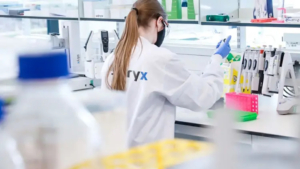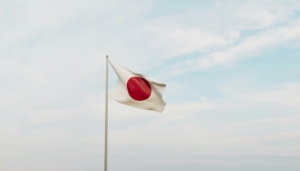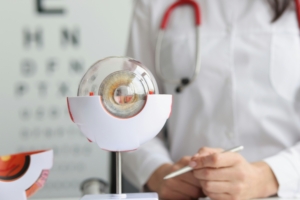
Tough times for cancer cell therapies
So far, no gene and cell therapies have been approved to treat solid tumours. European Biotechnology spoke with Karen Miller, SVP Pipeline Research at Adaptimmune plc, about promising candidates, and the art of circumventing supply chain bottlenecks caused by the COVID-19 pandemic.
EuroBiotech_Adaptimmune has presented its first preclinical data on a cell therapy targeting mesothelin at the ASGCT. What is its unique selling point, and what do the data say?
Miller_We engineer T-cell receptors (TCRs) to have the optimal affinity and avidity for its target antigens to recognise and kill cancer cells. TCRs normally recognise targets that are presented by a cell’s antigen-presenting machinery on the cell surface known as human leukocyte antigens (HLA). The target proteins are broken down inside the cell, and fragment peptides are presented on the cell surface in complex with HLA molecules. T-cells survey these peptide-HLA complexes and kill cells presenting anything they recognise as foreign. There are three major types of HLA and multiple minor forms, and our current clinical trials require that people have an HLA-A2 subtype, present in roughly 45% of people in Northern America and Western Europe. HLA-independent TCRs (HiTs), on the other hand, have been engineered to recognise cell surface proteins without the need for binding to HLA. We have used our proprietary engineering platform to identify and optimise a TCR that recognises the cell surface protein and cancer target mesothelin. We have shown that our HiT kills human cancer cells in vitro and induces complete tumour regression in a mouse tumour model expressing mesothelin. We aim to develop more HiT candidates against additional cancer targets and progress them to the clinic.
EuroBiotech_What progress does Adaptimmune see in the development of CAR-Ts, TCR-Ts, HiTs and related cell and gene therapies against solid tumours?
Miller_CAR-T therapies have been very effective for hematologic malignancies, with several products already on the market. CAR therapies require engineered cell signalling domains to mimic, but not equal the TCR’s natural machinery, and have been associated with tonic signalling, which may lead to toxicities. TRuC T-cells were engineered to overcome the limitations of artificial signalling by coupling antibodies to the TCR signalling domains. However, any therapy that uses high-affinity antibody moieties to bind target can be inhibited by cleaved, soluble protein. We have shown that our HiT targeting mesothelin, which has a low affinity and high functional avidity, is not inhibited by soluble mesothelin, but a TRuC comparator we developed in-house is. Our HiT was also more effective than the TRuC in a mouse tumour model. This is important because many cancer targets, such as mesothelin, are both cell surface bound and secreted.
EuroBiotech_Both manufacturing and CRO capacity for testing appropriate cell therapies, as well as sourcing of plasmids and other essential materials for vector construction, have been severely limited by the COVID-19 pandemic. How has Adaptimmune prepared to manage the bottleneck without facing too many delays?
Miller_The HiT data are all preclinical, although we are aiming for the clinic and HiTs could be used in either our autologous (currently used in our clinical trials) or allogeneic platform, which is still preclinical but making good progress. As the pressures of the pandemic were becoming apparent in early 2020, we took several steps to ensure uninterrupted supply chains to meet the demands of our clinical trials. We are also a fully integrated cell therapy company with our own manufacturing facility, vector production, in-house R&D, release testing, and quality control. We rely very little on CROs for this work, and the value of full integration has been more apparent than ever during the pandemic.
EuroBiotech_Will the sector and SMEs benefit in the mid-term from the current global expansion of vector production capacity?
Miller_Vector production is key to delivering cell therapies like ours. As you likely know, there was a well-publicised vector shortage a few years ago as the industry continued to rely on academic suppliers. At Adaptimmune, we have our own vector production facility within a dedicated space at the Cell and Gene Therapy Catapult in Stevenage, UK. Having our own vector supply and the ability to process-improve in-house has been hugely beneficial. I also think that having readily available vector is good for all of us in the cell therapy field, so expansion of vector production can only be a positive development.
This interview was originally published in Summer Edition of European Biotechnology Magazine 2021


 Sitryx Therapeutics
Sitryx Therapeutics
